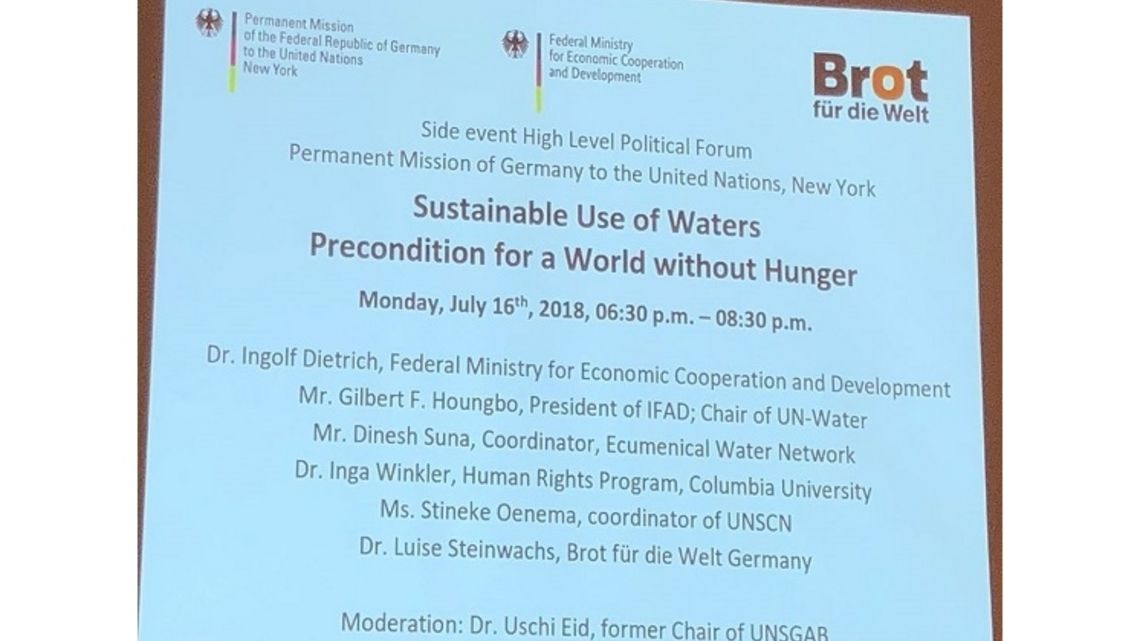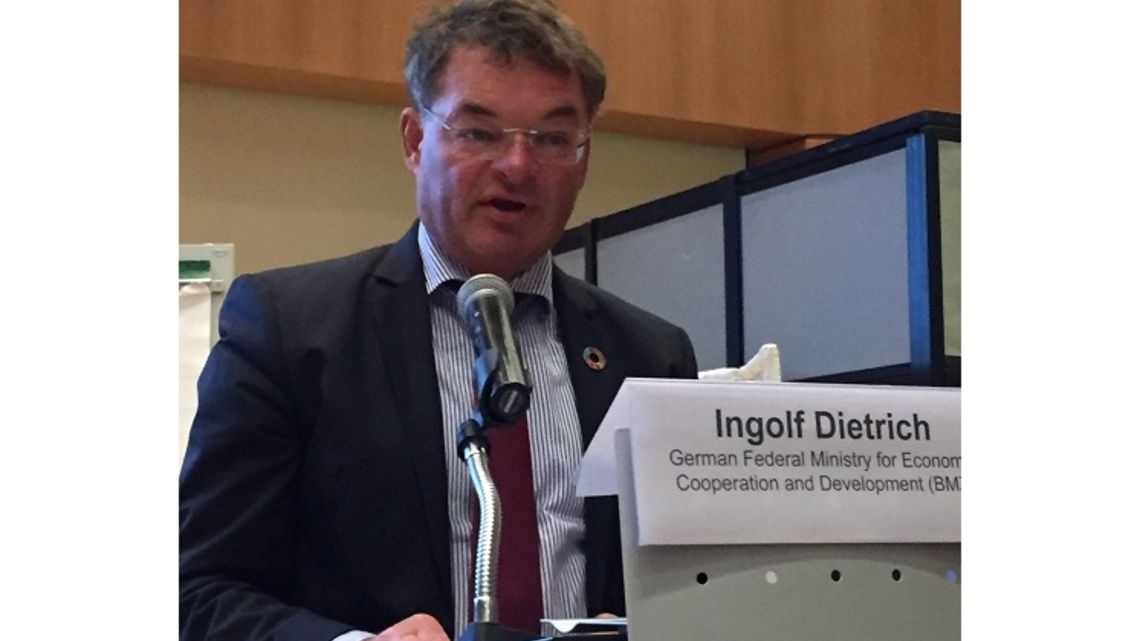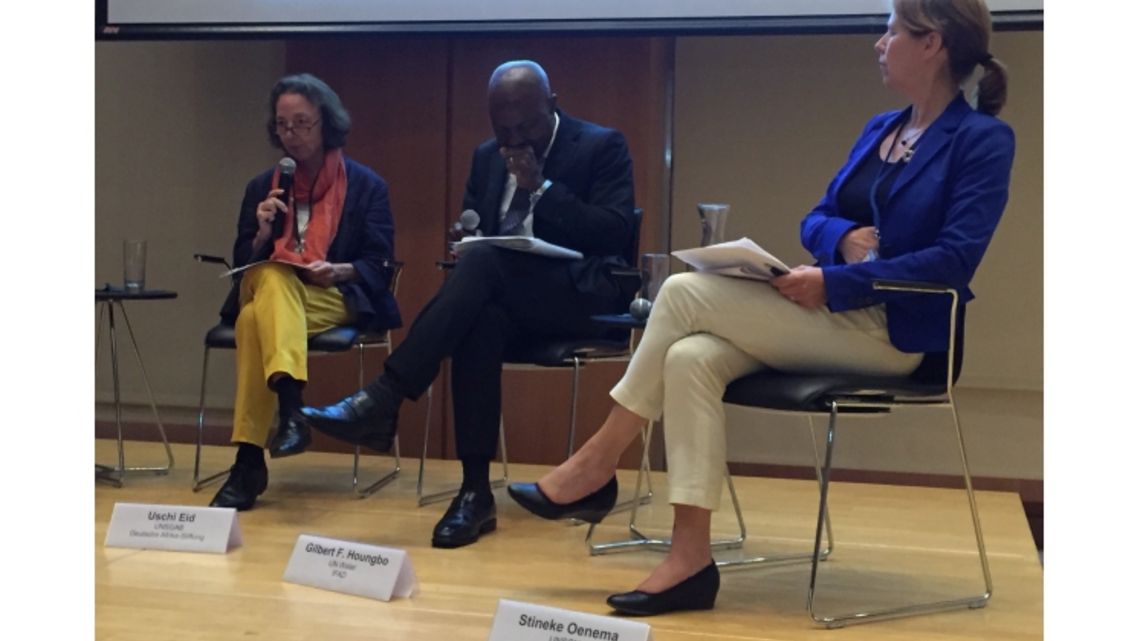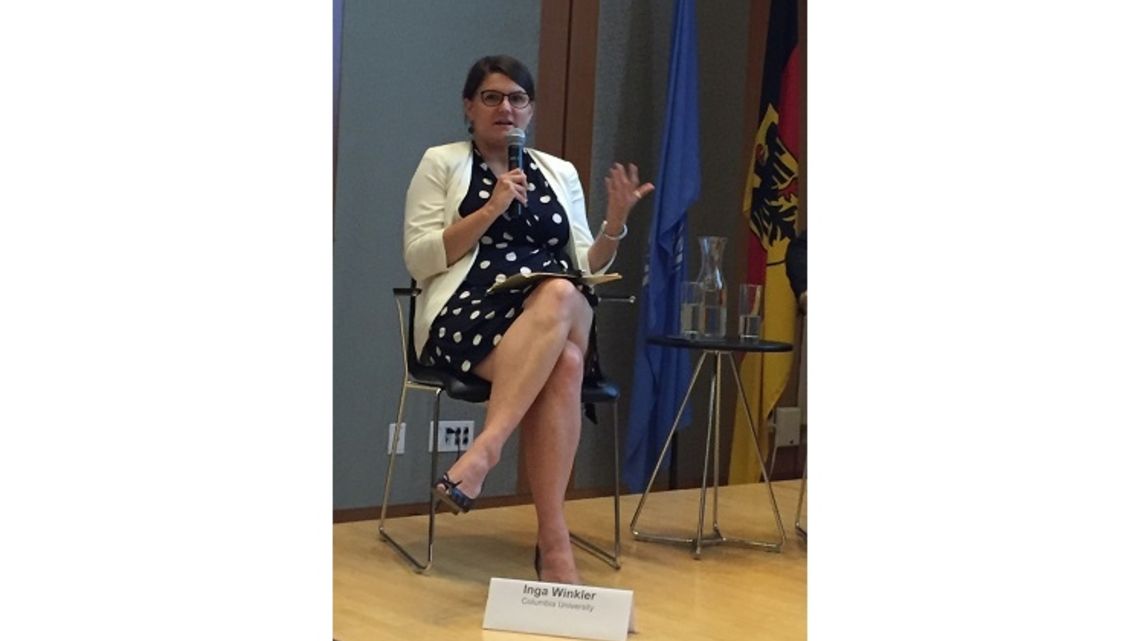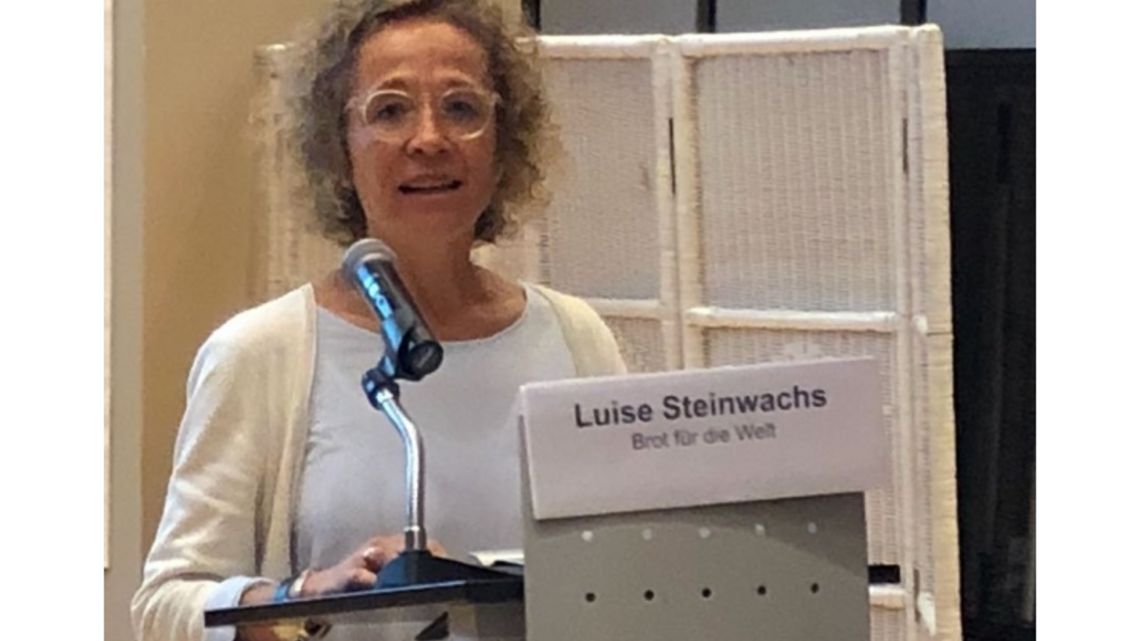On 28 July 2010, through Resolution 64/292, the United Nations General Assembly explicitly recognized the human right to water and sanitation and acknowledged that
"clean drinking water and sanitation are essential to the realisation of all human rights."
And the Policy Recommendations of the Committee on Food Security on “Water for Food Security and Nutrition” of 2015 states:
“Water is the lifeblood of ecosystems on which the food security and nutrition of present and future generations depend. Water of appropriate quality and quantity is essential for food production (fisheries, crops and livestock), processing, transformation and preparation.”
The Access to Water is unequal and leads to conflicts
However, the current statistics demonstrate that water stress levels are increasing worldwide. If we go on with our way of living, by mid century, close to half of the world population will live in areas affected by water stress. SDG 6 "Ensure availability and sustainable management of water and sanitation for all" is under review at this year's High Level Political Forum HLPF in New York.
In many regions, water scarcity is caused by poor water governance and mismanagement of natural resources and the destruction of ecosystems. Often, the handling of water resources is driven by sectoral water demands, which may, - especially in areas of water scarcity – lead to conflicts over water resources. Irrigation agriculture is a main factor – using 70% of the available freshwater resources worldwide. Already today, water stress exacerbates competition for water amongst user groups and threatens livelihoods and the right to food of subsistence farmers and small farmers worldwide.
Inequalities in access to water can be found not only between industrialized and low income countries, but also within countries between urban and rural, rich and poor populations. The inequalities are tremendous and must be eliminated.
SDG 6 at the High Level Political Forum
On the occasion of the first SDG 6 Monitoring Report, Bread for the World together with the Ministry of Economic Cooperation and Development of Germany and the Permanent Mission of Germany to the UN organized a Side-event during the High-Level Political Forum 2018: “Sustainable Use of Waters – Precondition for a World without Hunger The implementation of SDG 6.4 Water use and scarcity and its link to the human Right to Food.” The distinguished panel included Mr. Gilbert F. Houngbo, President of IFAD and Chair of UN-Water who presented the report. The Ecumenical Water Network EWN was represented by Mr. Dinesh Suna, who is the Coordinator. The EWN belongs to the World Council of Churches WCC. To widen the perspective to include the nexus with food security, Ms. Stineke Oenema, Coordinator of the UN Standing committee on Nutrition UNSCN was invited. In addition, Dr. Inga Winkler, Director of Undergraduate Studies for the Human Rights Program, Columbia University, strengthened the human rights focus of our discussion.
The introductory speech was delivered by Dr. Ingolf Dietrich, Commissioner for the 2030 Agenda for Sustainable Development, Federal Ministry of Economic Cooperation and Development BMZ. The success of the side event very much depended on Dr. Uschi Eid, former Chair of UNSGAB (United Nations Secretary General Advisory Board for Water&Sanitation), who facilitated the event.
Trade in virtual water and the water footprints of industrialized agriculture
For water scarce countries, virtual water trade - which here means import - is a major option to reduce their domestic water use. However, many countries experiencing high levels of water stress are still net virtual water exporters - like Pakistan or India. A study "Water Foot Print of European Agricultural Imports" that was commissioned by Bread for the World to the Technical Universty of Berlin clearly substatiates this situation.
Export production and irrigation agriculture significantly contribute to increasing levels of water stress. This may lead to conflicts over water resources and can be affecting food systems in a negative way. Also, this can lead to discrimination of vulnerable populations.
And even in water rich countries, in certain regions, local communities are more and more struggling to have access to water to grow food - for instance in Brazil or in Mozambique. We at Bread for the World together with our partner organizations support local communities worldwide to fight for their right to water and to food.
We call on the international community and especially major virtual water importing countries, such as the EU or Japan, to take the lead and address the negative impacts of excessive water extraction within global production chains of industrialized agriculture.
We need increased international support to help countries and local communities to reconstruct water bodies and assure adequate water provision to vulnerable populations, including subsistence agriculture in rural areas as well as in peri-urban settings.
The Human Right to Water and the Engagement of Civil Society
A human rights based approach in water governance is necessary. However, it is not enough to have the right to water in the constitution to achieve water security. More has to be done. The respective communities have to be involved and their customary water rights have to be acknowledged. The effective participation of non-state actors and especially representatives of vulnerable populations such as smallholder farmers and fishing communities will be critical in the monitoring of the right to water and specifically of SDG 6.
The Committee on World Food Security is a successful model of engaging various stakeholder groups and the foremost inclusive international and intergovernmental platform for all stakeholders to work together to ensure food security and nutrition for all. The stakeholders – besides the governments, are organised in a civil society mechanism and the private sector mechanism. Using a multi-stakeholder, inclusive approach, CFS develops and endorses policy recommendations and guidance on a wide range of food security and nutrition topics.
This structure allows for effective participation and meaningful contribution for civil society to its overall decisions and recommendations. Many of our Partner Organizations, including social movements, participate in the annual meetings of the CFS and its various intersessional work streams.
We call on governments, particularly our own government, to continue their support of this unique structure, especially since we know that the active involvement of civil society in policy spaces is not always wanted and civil society space is shrinking, if we don’t fight for it.
A UN Conference on Water
Since there is no UN structure, yet, that deals with water issues, one should at least think of a UN Water conference similar to the one held last year on Oceans, the UN Oceans conference that was held in 2017 right before the HLPF.
The UN should prepare a serious conference for global water management. Different actors from the state level to UN agencies, science and civil society organizations, should be invited to contribute and share concepts and best practices in monitoring and implementing the Human right to Water and the Water SDG 6.
In future, we need ideas for creating a structure for a policy space and processes with governments, civil society and other stakeholders, where the achievement of SDG 6 and the realization of the human right to water can be inclusively discussed and promoted.




